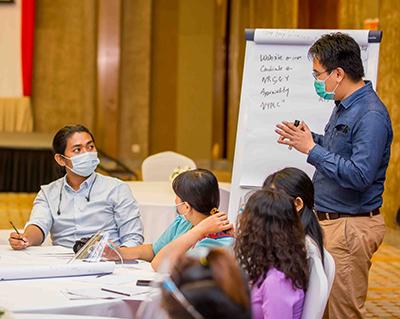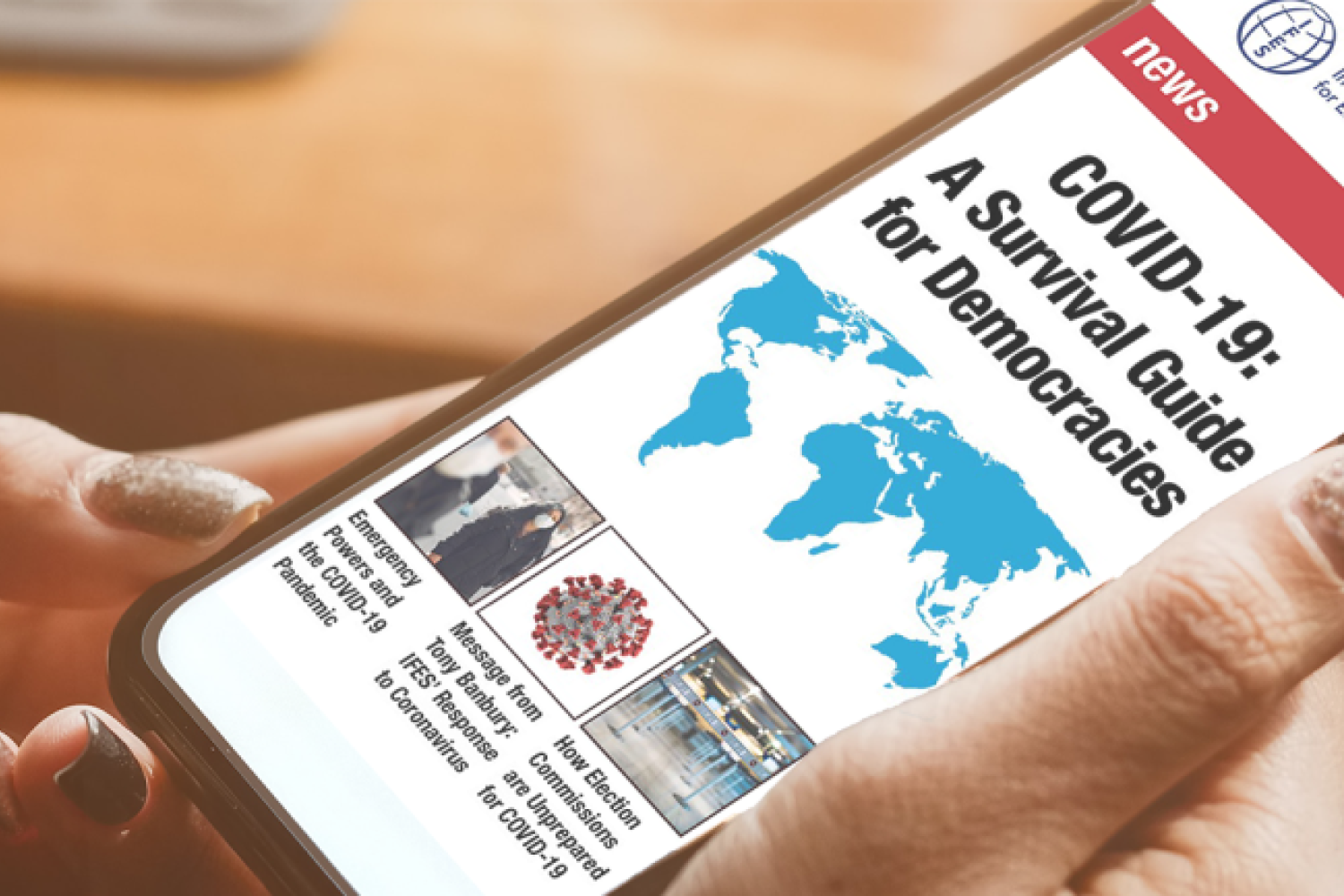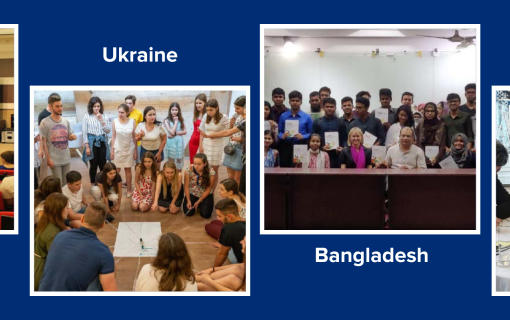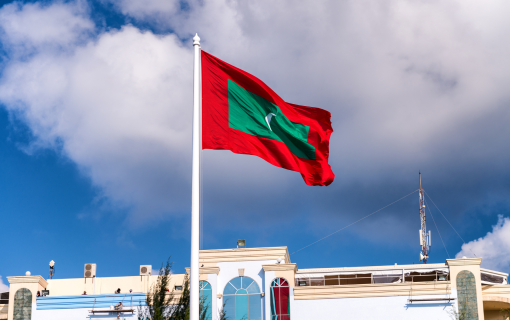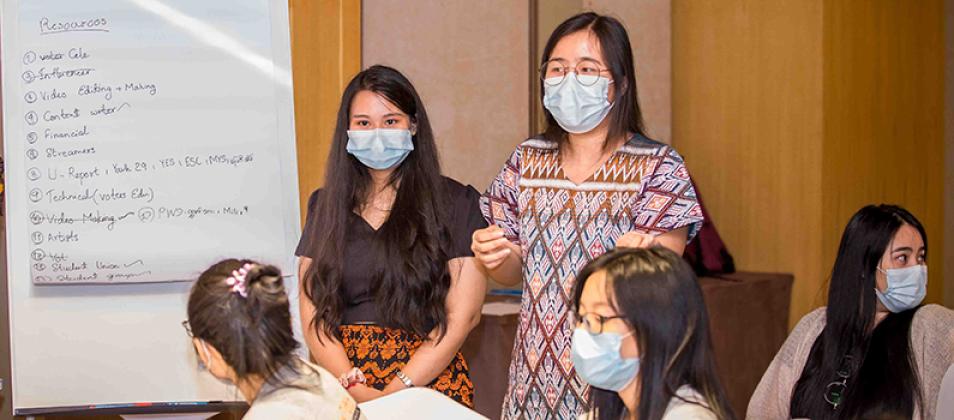
Myanmar Youth Innovate to Engage First-Time Voters
An estimated 5 million young people will be eligible to vote for the first time in Myanmar’s 2020 elections. On August 15, the International Foundation for Electoral Systems (IFES) brought together seven teams of young leaders from across Myanmar to participate in the 2020 Elections Youth Innovation Summit, where they collaborated on new approaches to engage, motivate and educate these first-time voters ahead of the elections.
The seven teams, out of the initial 25 who applied, were selected by an independent panel of experts based on their ingenuity and creativity in using social media, community engagement or information and communication technology (ICT) to address the following challenges related to youth participation in elections in Myanmar:
- Access: How to ensure all young voters have access to information?
- Action: How to motivate young voters during key parts of the elections?
- Spread the word: How to ensure young voters understand the importance of their vote?
At the summit, the selected teams worked alongside leaders from civil society and Myanmar’s technology sector to refine their ideas. Mentors included Myanmar ICT for Development Organization co-founder Yatanar Htun, University of Information Technology professor Aung Htein Maw, software engineer Thar Htet, technology and entrepreneurship blogger Win Ko Ko Aung, information technology project manager Thiha Thet Zaw and Joint Secretary of the Myanmar Computer Federation Aye Aye Thin.
The summit also featured a panel discussion on promoting youth participation in the 2020 elections between Myanmar Youth Empowerment Opportunities founder Ma Htet Thiri Shwe and software engineer U Thar Htet.
The event drew enthusiastic support from the 162 participants who attended, including representatives from the Union Election Commission, academia, media, civil society organizations and Myanmar’s technology sector. Strict social distancing and personal hygiene arrangements were put in place to allow for safe participation amid the ongoing COVID-19 pandemic.
After participating in the event, third-year law student Thin Kyi Aung said, “I learned great ideas from people my age and even younger. During panel discussion, I learned how to reach youth and my community using technology.”
“Though we seem to be young, our capacity is very high. Youth are very important for the future of the country, and we will be the next generation of the country’s leadership.” – Sai Stanley Sam
Min Thaik Aung Saw is part of a team of youth from three different states and regions who are using social media to deliver accurate information to ethnic minorities and people with disabilities and to encourage them to vote. He said, “Everybody should collaborate to create an authentic democracy. A single vote can change the future of country.”
The summit result was an impressive show of collaboration between young people, civil society and the technology sector working toward the goal of a more inclusive electoral process and broader electoral participation. All seven teams’ ideas will receive additional funding and mentoring support and will ultimately be incorporated into IFES’ voter education campaigns in the lead-up to the 2020 elections. Some ideas will be paired with IFES subaward partners to complement current activities, while others will be standalone projects with direct support from IFES.
2020 Elections Youth Innovation Summit Project Summaries
Gwa Youth Club: This project provides electoral information to youth in Rakhine State through a game application for mobile phones.
Team Triangle: This project uses mobile phone games to promote access to electoral information and encourage youth participation.
We Generation: The “No One Left Behind” project will utilize voter education trainings and peer-to-peer activities to engage ethnic minorities in Kachin State’s Chipwi Township, which has received less attention from civic and voter education programs.
Active Youth Participating Election Campaign (AYPEC): AYPEC uses online and community mobilization activities to bring youth and government closer together to inform and motivate young people to participate in the upcoming elections.
You Can: The “Let's Go Vote” project will use social media to provide young people ages 18 to 23 with accurate, timely electoral information.
Ray of Hope: This project will create a clearinghouse of trusted electoral information and resources and share it with youth voters through social media and a dedicated website.
Art of Casting Vote: The “Community Change Together” group provides youth with electoral information through social media and other ICT technology to raise awareness not only about how to vote, but on why it is important to do so.
Published on September 15, 2020.




